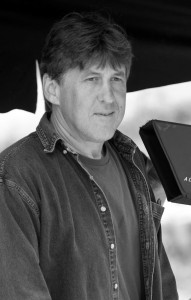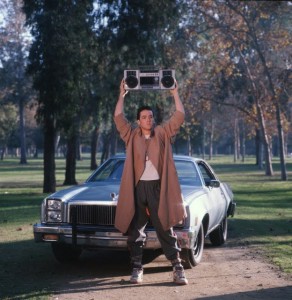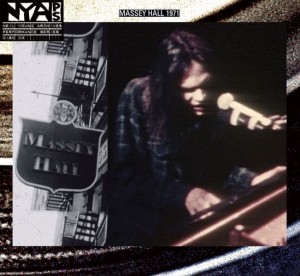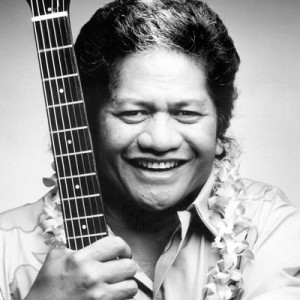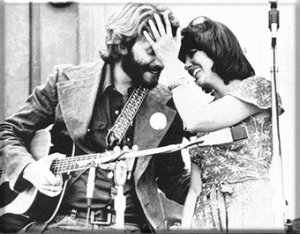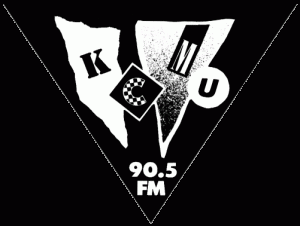Exclusive: Music Matters – A Candid Conversation with Cameron Crowe
An all encompassing discussion about music
Do you ever feel any pressure of being Cameron Crowe, the all-knowing Musical Guru?
No. That’s a funny question. We went into We Bought A Zoo thinking it would probably be mostly score. We had so much music in Elizabethtown. My Morning Jacket and Ryan Adams were always going to be the sound of Elizabethtown, but we went down so many paths that the movie filled with other records. Strangely, one of the most important songs in the writing of the script, “I Will Be There When You Die,” by MMJ, never found a home. Similarly, Julie Miller’s “By Way Of Sorrow” never made it into Vanilla Sky. Anyway, the original idea of We Bought A Zoo was to not play as much music. We’ve been trying to mostly make it a score-based movie, but sure enough… records we loved started creeping in.
It started on the first day. I wasn’t going to play music during the actual takes. I usually do that a lot. But I’m standing out there for a scene in a junior high hallway with Matt Damon and Colin Ford. The way Matt was looking, I kept thinking about the Tom Petty song, “Don’t Come Around Here No More”. I just said, “I’ve got to play it!” (laughs) So I played the song during the next take. Matt Damon immediately soaked it up and turned to me and said, “That was amazing. You’ve got to play that again. And what else do you have?” I don’t think he’d ever acted with music playing during the take.
So we started going down the road with records again. It really is exciting when you pick the right song out of the blue and you play it while you’re filming. Then it becomes part of the texture of the movie. We even played the theme from Local Hero when Peter Riegert was with us. He was the star of that movie, and Local Hero meant a lot to quite a few of us. And Scarlett Johansson is a huge music fan too, she’s made records with Pete Yorn and Massive Attack. She’s an artist too, and it really comes out in her performance in We Bought A Zoo. She acted to a lot of Bob Dylan, we did quite a few takes listening to Freddie Stevenson’s “If An Alien Astronomer Could See Us.”
So, no, I don’t feel the pressure to be “music guy”, but music is so much a part of my life. It’s never far away from the whole creative process. I always use music as a metaphor to explain stuff to the actors. I can’t help it. The end result is that it starts to bring out the music fan in all the people that are working on the movie.
It also creates some great music discussions on the set. For example, Thomas Haden Church is a specialist in a very specific kind of hard rock that he loves. Melodic, urgent, never cheesy. So we’ll have these great discussions about Seether or Eddie Trunk’s show, or Craving Lucy or whoever he’s into at the time. I guess the point is that there’s no reason to try to get away from music. Music is inherently part of the relationships that I have in life and in the actors we work with.
Yeah. I would think that somebody who signed up to work with you and walked on set and found that you weren’t playing music during takes might be slightly disappointed.
Yeah. Maybe so. It does add something. You’ll see in just the subtle way that people move. I remember when Steven Spielberg visited us on Vanilla Sky… he was about to work with Tom Cruise on Minority Report. He saw us doing it and said, “I really need to do that too.” We all had this vision of composer John Williams on set with a boom box playing his score on full volume. (laughs) I heard he tried it on Catch Me If You Can.
Do you ever tire of seeking out new music and just want to listen to the stuff that makes you feel the most comfortable?
I can’t help it. New music will find me. There’s stuff that I’m delinquent in checking out, but before too long, someone will come up to me and say, “What’s your favorite new Fleet Foxes track?” And I’ll say that I’m saving them because I know I’ll love the Fleet Foxes. I’m saving it for a car ride or something. But that immediate look of somebody LOVING new music makes me go home and listen. It’s fun. It’s the game that music lovers always play with other music lovers. Also, I listen to a lot of internet radio, which is where the best stuff lives now.
I love hearing the songs that people connect so hardcore to that they have to share it. Someone will play you a song that you will blow your mind too and then you’re off and running again. It’s the greatest cycle in the world.
That goes back to a period I remember when I was thinking that I was not going to listen to a lot of music and I’m going to just going “love the stuff I love” and not chase any new stuff for awhile. That was the day that Nancy (Wilson) came up to me and said that Heart’s drummer, Denny Carmassi, had an early copy of the new Peter Gabriel album. “You have to hear this song “In Your Eyes”.” I specifically remember her playing me “In Your Eyes” and thinking this is the sound of the future. And then I was back craving new music again. That’s the beautiful thing about music. It doesn’t matter what anybody says about the music business dying. Music will never die. The business will transmute, but you’ll always be able to go down the street and see somebody playing a song. And you’ll want to know what that song is, and suddenly that song has crept into your way of looking at the world.
You’ve mentioned Todd Rundgren as someone you didn’t want to like, but couldn’t help yourself…
You touch on something that is one of the great things about loving bands, music or movies. Sometimes the ones you love the most are the ones that began by you arguing so aggressively with your friends that the group or the song is shit. It’s like something that kind of irks you ultimately can become the very thing that you cannot get enough of. It’s true in life too with relationships for sure.
Because of an album cover or a photo I’d seen, Todd seemed like an irksome dude. He had a smirk on his face. He had such a self-appreciative presentation that made me want to be the guy who said, “I don’t want to get it.” Of course now, I crave Todd Rundgren and I will forever. The YouTube performances of Todd, I mean I’ve lost entire days going through ‘em. (laughs) I think I’ve over-tweeted this issue with Paul Myers too. Paul wrote a great book on Todd (A Wizard. A True Star. Todd Rundgren In The Studio). There are a lot of songs and people that begin that way in your life. It’s the best cycle, it’s fandom.
How about a guilty pleasure that might not have the critical praise?
Mid-period Elvis Presley. It’s too easy to love The Sun Sessions. If you really love Elvis, you’re into “Shrimp Boat Song”. Or all that great 60’s pop stuff like the Grassroots and Every Mother’s Son.
What about a review that you wish you could rewrite? I saw your San Diego Door review of Neil Young’s Harvest in 1972 and you (like many critics) trashed it pretty good.
I remember being really disappointed by Harvest because I heard all those songs on the bootleg of I’m Happy That Y’all Came Down. All that stuff that showed up later on the Massey Hall album that was finally released. I just initially felt like some of Harvest was overproduced.
Any songs from that album that really stand the test of time with you?
Sure. “Out on the Weekend” was the song that played as we rolled up to the property that became where we shot We Bought A Zoo. It really completed the whole vision of it and we knew we needed to shoot there. Some of Neil Young’s best writing is on that album. Usually I’m fine to have the demo of a song I love. I don’t even need drums. Just the singer and the song…
The whole Jack Nitzsche overblown “There’s a World” stuff on Harvest disappointed me. But the songs over time, you just go ‘Oh My God.’ The strings were meant to be there. But still, nothing beats the versions you hear on Massey Hall. Much the same way, there’s bootlegs of Neil playing in ‘92/’93 which is where the version of “Cortez The Killer” that we used in Almost Famous came from. It’s just really hard to top solo, acoustic versions of those songs. That’s just where I sit as a Neil fan. It’s the same with a lot of other artists as you read the early reviews I did for the Door and L.A. Times. I’m always fighting for the most original version of the song. If you come to me and say that you have the greatest band version of a song or a shitty demo where you can barely hear the vocals where it was first written in a back room at the guy’s house, give me that one. Give me the versions of “Watching the Wheels” and “Grow Old With Me” that John Lennon wrote with his son, Sean, crying in the background. Or even the demo of Marvin Gaye working out “Sexual Healing” in his living room in Belgium. The best! Almost every time, those are always going to be the most brilliant interpretations of the song. But that’s just me.
What has happened with your long-planned Neil Young book with photographer/Young archivist Joel Bernstein? Is it a traditional bio or do you have something else planned?
I do. I have a changing concept. We were going to do the cover of Rolling Stone around the times of Archives Vol. 1. The time to get with Neil up at his ranch kept changing due to other projects. We finally got up there after Archives Vol. 1 was released and he was working on Dreamin’ Man. Anyway, we did the most amazing interview with Neil. He said it was the last interview that he would ever do. It was a career spanning interview. We drove around his ranch and talked about everything. Rolling Stone had a hard time scheduling it since Archives Vol. 1 had already come out. Then I heard from Neil and he said that he was coming down to L.A. and wanted us to hear his new album that he was working on which turned out to be Le Noise. So now we do more interviews based on those songs and the creation of that album. We had a big session that was not unlike the Bob Dylan Biograph session where he was talking about songs. Track by Track. What inspired them, what they remind him of today. Just amazing stuff. Now, the entire thing is awaiting the release of Archives Vol. 2 or it got me thinking that we now have enough material to do a Conversations With Neil Young book. Which would be just as thorough as we were able to be with Billy Wilder. That feels like it would really create a difference with the Shakey book and be a wonderful thing for fans to hear Neil talk about his music through the years in Q & A form.
What did you think of the first volume of the Neil Young Archives?
Brilliant, and just perfectly complex and beautiful. You don’t think of Neil Young as being a techhead but he is as geniously precise as any R&D guy you could ever meet. The Archives are the two sides of his brain on full throttle – the techie and the dreamer.
Greatest guitarist you’ve ever seen live in person?
I can’t narrow it to one, so how about three? Joni Mitchell live at the Troubadour (Nov 1972) where she was playing solo and doing all these amazing, odd tunings that were hard to play and hard to copy. Joel Bernstein was the one who kept track of all the tunings, and I think, taught them back to her. She was so original that even she couldn’t keep track! But she was doing all the tunings and playing all these songs that were so intricate, beautiful and hard to play. This was right after the release of For the Roses. It was a quiet tour de force of guitar playing.
Seeing The Who live really at any point, you marvel over Pete Townshend’s incredible rhythm playing which is just as important as any lead guitar.
And then seeing a guy named Ledward Ka’apana play in Oahu, Hawaii at a strip mall a couple of years ago. He was playing the most truly amazing slack guitar. He’s kind of the Keith Richards of slack guitar. That was truly inspiring. So I would pick those three.
Would you consider Robert Hilburn, the legendary L.A. Times music critic, a mentor? Was it him or Danny Goldberg (VP of Swan Song at that time) who helped you get your first L.A. Times writing assignment on Led Zeppelin in 1973?
Absolutely, Robert Hilburn is a shining light for anybody who wants to write or read about music. He was really important to me. We’re putting together a collection book of the rock journalism I’ve done, some of which you’ve collected on the Uncool… thanks by the way! I really want to treat the book as a primer for how you can function as a young journalist. Even today, journalism lives, you know? I get people asking “How can I break into journalism and write about the music and the artists I love?”. That fever lives in anybody who loves music and loves to write about it. So the book will have some of the stories between the stories. How do you do it? How do you get the access? How do you behave, and how do you do an interview that makes yours different from the others?
For that 1973 article in the L.A. Times, Led Zeppelin didn’t want to talk to anybody, but Danny Goldberg, their publicist was a former journalist himself. He wrote for Hit Parader and Circus and for Lisa Robinson’s Rock Scene. He was a sympathetic guy to the plight of the journalist. He knew that I really wanted to write about Led Zeppelin and I had written about other Atlantic acts and had established a relationship with Danny, working together on other stories. He kind of inched me onto a list of reporters who were much more heavily connected than me who would talk with Led Zeppelin. People like Al Rudis of the Chicago Sun Times and Lisa Robinson, who became a good friend and still is.
So I asked Robert Hilburn if I could write about Led Zeppelin. He said yes, but that I couldn’t let the artist pay for the trip from San Diego, where I lived, to Los Angeles. I said, “Don’t worry about it, I’ll drive!” I couldn’t even drive at that time. I took the bus, and Neal Preston would pick me up at the station. Bob Hilburn was insistent on journalistic integrity, and it was important. It said, basically, that rock journalism wasn’t a throwaway pursuit. It was as important as anything on the front page. He said, “Don’t even let the record companies pay for your gas. You can’t let the artist influence your coverage by letting them pay for your travel.” He was adamant about that and it was great. It was that relationship that happened over the L.A. Times coverage that made Zeppelin trust us enough to do the Rolling Stone cover.
Robert Hilburn is also a great editor. I remember him telling me that you really have to describe who these people are and what position they occupy in the band. “It’s not enough to say, ‘bassist Glenn Hughes.’ Describe him and his style!” I’m really proud of those L.A. Times articles as they were so beautifully edited by Hilburn.
What’s your take on Linda Ronstadt? I’m surprised that she’s never even been nominated for the Rock and Roll Hall of Fame…. do you think it’s due to turning her back on rock/pop or the fact that she wasn’t a songwriter?
Let’s campaign because you’re absolutely right. She’s a pivotal figure in many ways for the people she put together and the songwriters she discovered. Forget what an amazing singer she is. I think what happens sometimes is that when an artist turns their back and says I’m pulling out of the race, they get forgotten. The same thing happened to Laura Nyro. They check out and they don’t spend a lot of time reminding you of the things they’ve done. So let us begin a campaign.
Is it a coincidence that you’ve hired many actors with musical pasts or futures (Zooey Deschanel, Scarlett Johannson, etc…) or passionate music lovers (Cusack, Dunst etc….)? Do you actively seek actors for roles that have music running through their veins?
It’s probably not a coincidence at this point. We end up talking about music pretty early on. There is a difference between people who don’t appreciate music or think musically and those who do. Those who do are able to get the metaphor you naturally use when you’re directing which translates onto the screen. A music lover is often the exact actor who soaks music up when you watch music and film together. So pretty much if it’s somebody who loves music you will feel it later in the editing room.
Matt Damon has discussed the Eddie Vedder/Neil Young-heavy tape he received with the script. Can we expect a lot of Vedder and Young songs on the Zoo soundtrack?
I think it’s going to lean heavily into one or two artists, but not necessarily either of them. We did play a lot of Eddie, Neil and PJ during the movie. It’s kind of revealing itself now. There is another artist who is campaigning in the editing room with his music ala Cat Stevens in Harold and Maude. We’ll see how far it gets.
Will there be a traditional score on We Bought A Zoo?
It won’t be a traditional score, but there will be more score than usual on this one. It won’t feel like a collection of records as much as you’ll feel an overall mood. Local Hero was a big, big influence in that. Mark Knopfler’s score really set a tone for a world you create in a movie. It happened a little in Vanilla Sky with Nancy’s wonderful themes, but I really do want to create one of those movie environments where when it’s over, you want to go back there and feel that way again.
To a completely different end, William Friedkin did that with The Exorcist with a very small amount of music. But to this day when you hear that one theme or feel that piece of music you go right back to the tone of that movie. I really like that and that should be We Bought A Zoo.
I heard that Blood Circus’s “Six Foot Under” will be featured in the Pearl Jam Twenty doc. Will other musicians’ songs play a part as well or will most of the music be courtesy of PJ?
Yes. “Six Foot Under” is in the documentary. It’s one of the first songs I heard back in Seattle when Bruce Pavitt (Sub-pop founder) was DJing at a museum show and played “Six Foot Under” into “Ring My Bell” by Anita Ward. I was thinking, “Holy Shit.” That’s a different sensibility than I grew up with. That is not a San Diego segue. That feels like the future.
Sure enough, later that night, we ended up at a Mother Love Bone show at the Central. It all felt like that KCMU (now KEXP, of course) sensibility that I love so much. Pearl Jam Twenty begins with that mood setting and the idea is to put you back into that frame of mind. 1988-89 Seattle, where the music belongs to you. You have the music playing in clubs that nobody else has. You have KMCU at the far left end of the dial. They will play Thelonious Monk, Anita Ward and Blood Circus. PJ20 begins by putting you in that place.
The soundtrack will have quite a few rarities and some demos from a few different eras in the band’s history. Kevin Shuss (and Josh Taft) deserve a lot of credit for that – Kevin in particular was filming the band as it was all starting to break wide open. He’s still filming them. Chris Perkel, Kevin Klauber and Adi Cabigting, our editors on PJ20, have been deep in the cave curating this visually and sonically, along with Andy Fischer (Vinyl Films) of course, for what has been literally years. It’s been our passion project for a long time. The crew all deserve a big thanks. You’ll be able to hopefully, between the movie and the soundtrack, really feel the band from the inside out. It’s one of the gifts of having met them so early in their careers. They gave me a lot of cassettes and work tapes, and I kept everything. It’s been a little bit like homework for them, I know, to go back over all the artifacts… but like Neil Young, they’re able to be objective and look at their own stuff the way a fan would. Which is one of the themes of the movie – a band made up of fans, kept alive by fans, and now their concerts are a celebration of that fact. Everybody made it, together…
One last question, do you prefer the mono or stereo version of the Beach Boys’ Pet Sounds?
Because it’s one of the greatest recordings ever, for the pure feel of the songs, I’ll take any version of Pet Sounds that’s available. I like every version of Pet Sounds. Especially bootlegs or box-set versions of the songs that contain Brian Wilson’s studio chatter. Knowing Brian’s fondness for mono, I’ll always appreciate that sixties sensibility, but I’ll take any version you got.
© 2011 The Uncool by Vinyl Films and Greg Mariotti. All rights reserved.


